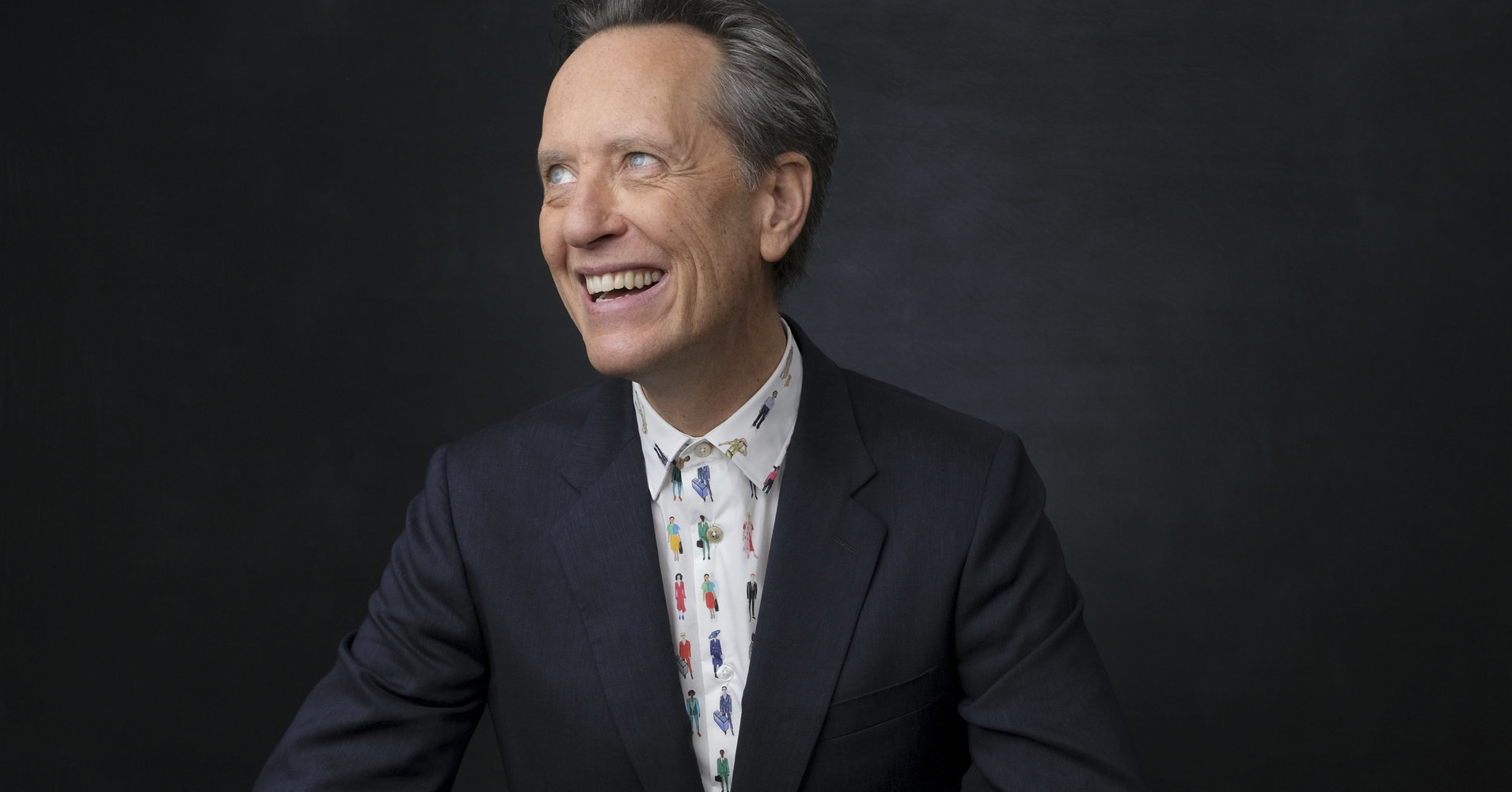[ad_1]
Whether or not Richard E. Grant wins the Oscar on Feb. 24, he’s already earned awards season’s Mr. Congeniality title. No one on this year’s circuit has seemed happier or more grateful, nor has anyone snapped as many selfies to soak in the bliss of it all. (He’s also probably the only person not affiliated with “A Star Is Born” to receive affirmation from Barbra Streisand, to whom Grant wrote a breathless fan letter as a teenager).
The scene-stealing character actor, born in the small African nation of Swaziland, is finally getting his due at age 61 despite a delightful résumé that includes “Withnail & I,” “The Player,” “The Age of Innocence,” “Spice World,” “Gosford Park,” “Doctor Who” and “Jackie.” It’s well earned. His turn in 2018’s “Can You Ever Forgive Me?” is magnificent. Grant plays Jack Hock, a gay wayfarer who aids hard-up biographer Lee Israel (Melissa McCarthy) in her pursuits as a small-time literary forger.
Grant’s performance is at once tender and armored, vulnerable and sassy as hell. He wears on his elastic face a lifetime of hardship coated in what Israel would call “caustic wit.” All that stands between Grant and the Best Supporting Actor trophy is Mahershala Ali, the “Green Book” MVP who has collected most of the category’s precursor accolades.
With a week to go until the Oscars, Grant called me to debrief on this protracted thrill ride. We talked about seeing Jack as an homage to the men who died of AIDS in the 1980s and ’90s, what it’s like to campaign for awards, and his friendships with Lady Gaga, Madonna and Emily Blunt.
It seems like no one has had more fun than you over the past few months.
[Laughs] Good, well, it’s true. When you are that person, you’re enjoying it. I’m just astonished that I don’t see other nominees jumping up and down to the extent that I obviously have, but then they’ve all been nominated or won stuff before, so I suppose that’s the difference.
I don’t know if they’re jaded, they’re just ― I’ll put it like this: If you have lobster once a year, or twice a month in your life, you’re not going to get too excited if you’re presented with another one. If you’ve never had one in your entire life, nominations or awards or traction like I have, then you feel like you’re at the lobster feast for the first time in your life. You’re putting the bib on, and you’re going to enjoy every morsel.
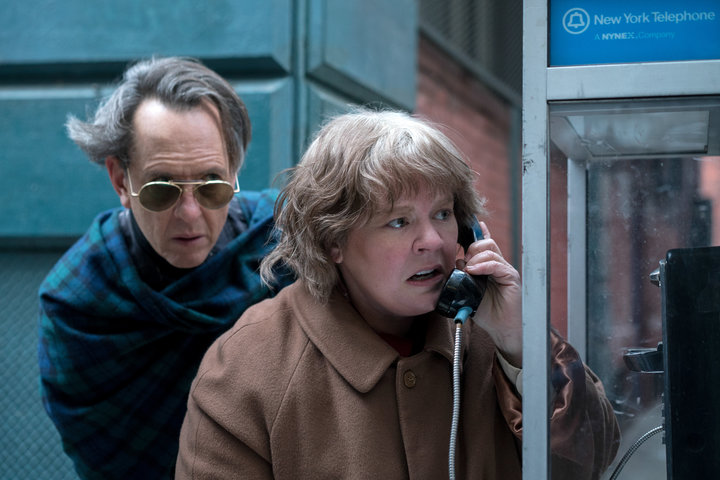
That’s a perfect metaphor. It’s interesting, you’re receiving your first Oscar nomination at age 61, and after you turn 62, you’ll appear in what will inevitably be the highest-grossing movie of your career: “Star Wars.” What do you think it says about you that you’re receiving so much love at this particular stage of your life?
I think there are two names that I’ll give you. The first is Marielle Heller, the director who put me in [“Can You Ever Forgive Me?”]. And there’s Jen Euston. who cast me in the movie. And oh, I’ll give you a third, and the third one is Melissa McCarthy. Working with her as your scene partner in crime in a movie that’s caught critical fire in the way that it has done is something that none of us could have anticipated or predicted two years ago when we made this movie over 26 days in Manhattan. It was one of those lucky things where three people come together and made something that has this kind of traction. I’ve never experienced anything like it, and I know in my bones it will never happen again.
I don’t know about that, but “Can You Ever Forgive Me?” has been so warmly embraced by gay audiences in particular, and you’ve said you dedicated this role to the men who died in the ’80s and ’90s. How cognizant are you of queer audiences’ affection for this movie, and what does that mean to you?
Well, firstly, thank you for that. What Melissa and I were very, very I suppose anxious about was playing these two characters in the historical moment where we are now in terms of identity and political correctness. To have heterosexual actors playing these two gay characters, we anticipated that there might be antagonism, but that hasn’t happened as far as I know. The Dorian Awards [handed out by the Gay and Lesbian Entertainment Critics Association] gave it LGBT movie of the year, and they gave me best supporting actor of the year. You can’t get more approbation than that.
And I know from more people at SAG, BAFTA and Academy member screenings and doing the Q&As afterwards, it has never been an issue on any occasion. Not a single person, hand on heart ― Melissa and I have conferred about this ― has ever said to us, “How dare you have the gumption to play these roles?” So that’s just been very heartwarming.
And on the other side, Jeff Whitty and Nicole Holofcener’s screenplay was so smart about, I think, not making it an issue of what the sexuality of these two characters were. That is who they are, and I think that it’s apropos to the time that we’re in and this historical moment where that hasn’t become the issue. At Q&As, I’ve very often pointed out that at no point in the movie is there suddenly a Maria Callas or a Judy Garland moment where you are going, “These are gay characters and these are the emblematic overtures that, for whatever reason, have sometimes been used in movies.” I think that it’s the fact that they haven’t done that in this movie is really smart. I like that enormously because it’s about these two people who are failing spectacularly, are near destitute and find each other out of desperate loneliness rather than because he happens to be one of the most promiscuous people who contracted HIV and she’s a misanthropic lesbian who only loves cats. That’s the kind of background of it.
In terms of what you were asking about my commitment to it, I was friends with and worked with a Scottish actor called Ian Charleson, who was the lead in “Chariots of Fire,” the movie that won Best Picture in 1981. He died of AIDS at the age of 40, in 1990, and he had so many of the little-boy-lost, scathingly witty qualities that Jack Hock has in the screenplay. He was somebody that I really, from my real-life experience, drew great inspiration from, and I asked Marielle Heller the night before we shot my final scene in the movie whether I could wear the bandana that I wore because that is what Ian was wearing the last time I saw him. That felt like a personal homage that I could give to this man who was a great family friend of ours and who was hilariously funny and also absolutely unapologetic about his very promiscuous life. What more can I tell you?
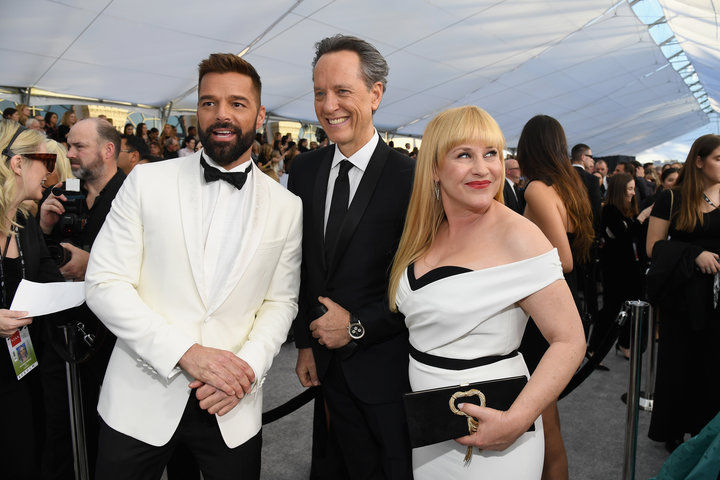
That’s beautiful, and as a gay person myself, I’m very relieved, between this and “The Favourite,” to see gay characters who can be difficult and who have so much more going on within them than just coming out or falling in love for the first time or being bullied, which tend to be the main narratives that we see with gay characters in cinema.
Exactly. I couldn’t agree more. And the other thing is ― a great thing with Sandra Bernhard, who I worked with on a movie called “Hudson Hawk” many years ago ― I remember vividly the Meatpacking District [in New York City] in 1991 and seeing men on street corners in Manhattan dying of AIDS who had pieces of cardboard saying, “I’m dying and nobody cares. I’ve been abandoned by family, and I’ve been abandoned by God,” and that made such an extraordinary, indelible impact on my memory. It really informed me. Even though it’s only a historical blink away, in 1991 there was no cure at that point. And it was a death penalty once you contracted it. You can think, “Well, that happened then,” but it’s so recent and it wiped out such an entire generation of people. I feel that the movie, if anything, is such an homage to that.
It absolutely is. Who, other than Melissa and Marielle and the rest of the “Can You Ever Forgive Me?” gang, have you most enjoyed socializing with during the past few months?
I’m running into Emily Blunt a great deal. She’s English and she went to the same school my daughter went to, so there’s an instant connection just through sheer familiarity and a shared cultural background. And she’s one of those people that, not unlike Melissa, she has the effect of making you feel like you’ve known her for much longer than you’ve actually known her. That’s a great quality to have.
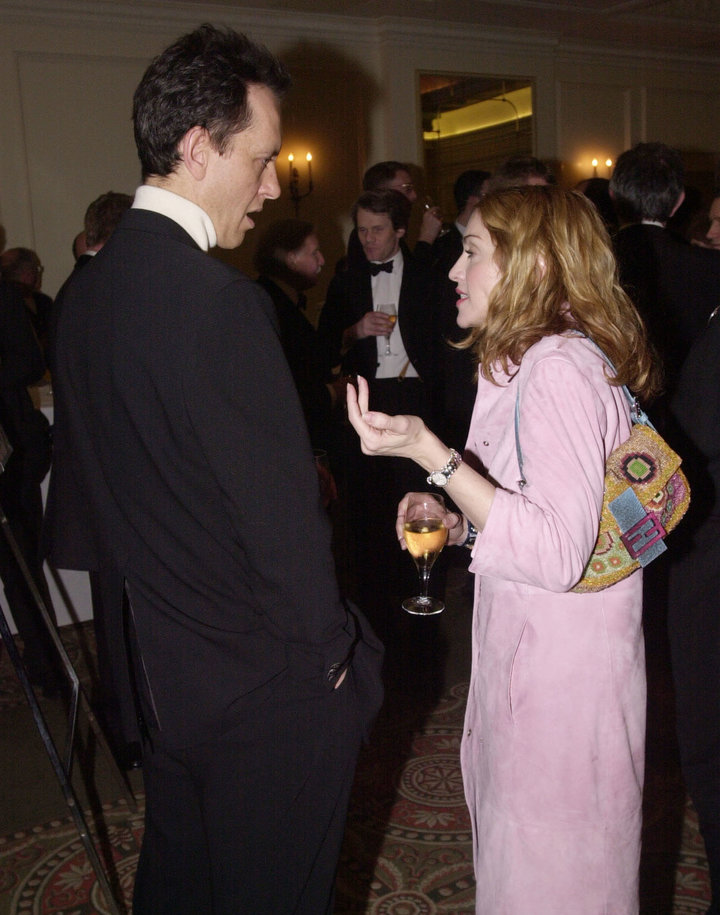
Which of your fellow nominees would you most want to work with?
Well, I’ve worked with Adam Driver on “Girls,” and he is in “Star Wars.” So I’ve worked with him. I’ve never worked with Mahershala [Ali] ― I think he’s absolutely amazing. I’ve never worked with Timothée Chalamet either. I haven’t worked with Sam Rockwell or with Sam Elliott. Sam Rockwell is the only one that I haven’t met. I’ve met Sam Elliott many times, and Chalamet too. I did the Hollywood Reporter roundtable with him. Again, because you keep seeing people and you’re in this five-month bubble of being in the same category of best supporting actor for various awards, you have a sense of who they are, so, yeah, I’d love to work with all of them, actually.
What’s it like to hang out with Lady Gaga?
She was so surprisingly accessible. The last time I saw her, we were standing in the press queue at the Critics’ Choice Awards, I think. And I said, “How does this compare to the Grammys or the music awards?” And she said, “Well that’s much more rock ’n’ roll, and it feels much less political.” She said what she has realized is that, with the acting awards circuit, it is kind of political and there’s a kind of campaign quality to it that she said doesn’t exist in the same way, in her experience, at the music awards. And I see that. Maybe I’m wrong, but I can’t think of as many [music awards] that are the equivalent of SAG, the Critics’ Choice Awards, the [AARP Movies for] Grownups Awards, the Golden Globes, the Oscars, the BAFTAs. It seems like there are only Brit Awards and the Grammys in the music industry.
It isn’t as much of a season, so to speak. You touched on just the right thing: The rub of award season is that it’s treated like an extended campaign. You spent months, directly or indirectly, lobbying to win prizes. How conscious are you that you’ve been more or less campaigning for the past few months?
Well, I think that Fox Searchlight so believed in the movie, and what’s became evident from its world premiere at the Telluride Film Festival in Colorado in September of last year, which is five or six months ago, is that the relationship or the chemistry between most of the cast and I on-screen and off was something that that felt kind of like lightning in a bottle in terms of publicizing and getting the movie out there.
So I suppose, in retrospect, it seems campaignlike, but during the months of doing it and going to screenings and meeting people and picking up awards here and there, it hasn’t felt like that. It’s not so political in that way, but that is to do with my, I suppose, naïveté, as I’m a virgin to this entire experience. I’m sure that if you spoke to Nicole Kidman she would know exactly how to cherry-pick which press to speak to, which screenings to go to, which festivals to turn up for because she gets nominated every single year, as does Meryl Streep, so they are veterans in terms of that. I’m a complete novice to this. It’s never going to happen to me again and it’s never happened before, so in a sense, I feel like a kid that’s gone to the fun fair and been given a limitless bag of coins to go on every ride, rather than going, “Well you better hit these five ones and then sit back and wait and see what the payoff is.” That’s not what it’s felt like. I felt like literally, “Here, kid, go. Have a ball” [laughs].
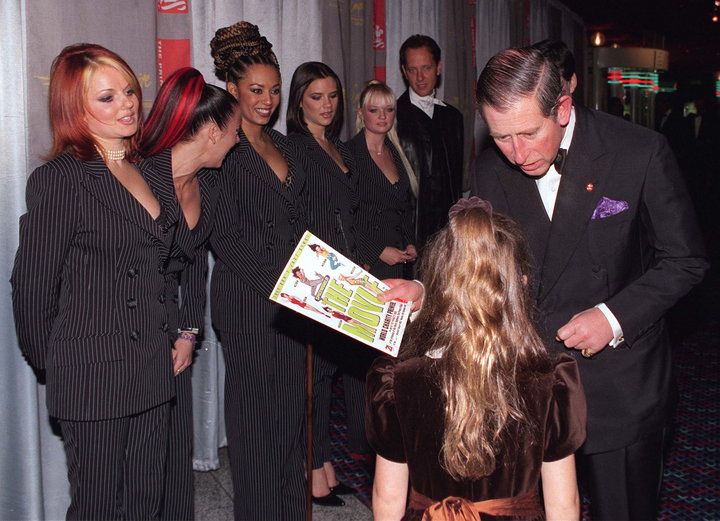
You have worked with a striking roster of directors, and one name on that list is particularly interesting. How did “Filth and Wisdom,” Madonna’s directorial debut, enter your life? How does one end up with a Madonna script, and what was that experience like?
OK, I have known her for 30 years because she used to be great friends with Sandra Bernhard. Just after we had done “Hudson Hawk” together, Sandra and I ― and I was really good friends with Isaac Mizrahi, as well, who’s a great friend of Sandra’s ― Sandra said to me in 1990, I think, “Madonna wants to meet you. We’re going around to her house for Valentine’s dinner.” So I thought, “Whoa, OK.” I just imagined it would be like a music Hollywood scale of, you know, two to 40 people there. But it was Sandra, myself, Madonna and Tony [Ward], the guy she was going out with at that time ― and that was it.
Yeah, we went to her house up in the Hollywood Hills. I’d done a movie called “Henry & June” about Henry Miller, and she was very interested in the art direction and all the stuff about that. I think she was gearing up to do “Evita” or trying to campaign to get the role of Evita at that point.
I know that one of the videos that she did subsequent to my meeting and talking to her was set in a Paris hotel that looked very like the demimonde world of Henry Miller of the 1920s.
You must be referring to “Justify My Love”
Yeah, exactly. There you go. She also is friends with people that I have known for, you know, 35 years: Trudie Styler and Sting. So I’d seen her there fairly regularly, and then she called me up and she said, “I’m doing a short, 20-minute movie and I want you to play my blind, gay dance teacher based on the guy that was my mentor when I was a teenager. And it’s going to be called ‘Filth and Wisdom,’ with Eugene Hutz and Vicky McClure in London. You’ll do five days’ work and take in a slight bit of money.”
So I agree to do that. Then the next thing, she calls me, I don’t know, a couple of months later, I think it was, and said, “Oh, I’ve just got to do a little bit more, some reshoots,” and so I went back and did that, and she didn’t say anything to me. But the next thing I heard was that it was a full-length feature screening at the Berlin Film Festival. So, you know, that’s her prerogative. Anyway, that’s my experience working with her.
If you could take one Spice Girl with you to the Oscars, which one would it be?
I am fearful of having a large platform shoe on my backside, so I couldn’t possibly tell you, Matt.
OK, fair. Around 2006, you said you wanted to write a screenplay about the making of a disaster movie that you described as “basically a ‘Fitzcarraldo’ in outer space,” which sounds absolutely hilarious. What happened to that?
I wrote a novel called By Design, and that is part of the movie plot within the story.
So you did it in novel form instead?
Your role on the show was brief, but are you excited for the final season of “Game of Thrones”?
Yes. Do you have any big predictions about who will rise up?
Oh, I have no idea. I have no idea! Do you?
I’m rooting for Sansa Stark always. I have been for a long time. But I’m not sure how it’ll actually pan out.
[ad_2]
Source link

